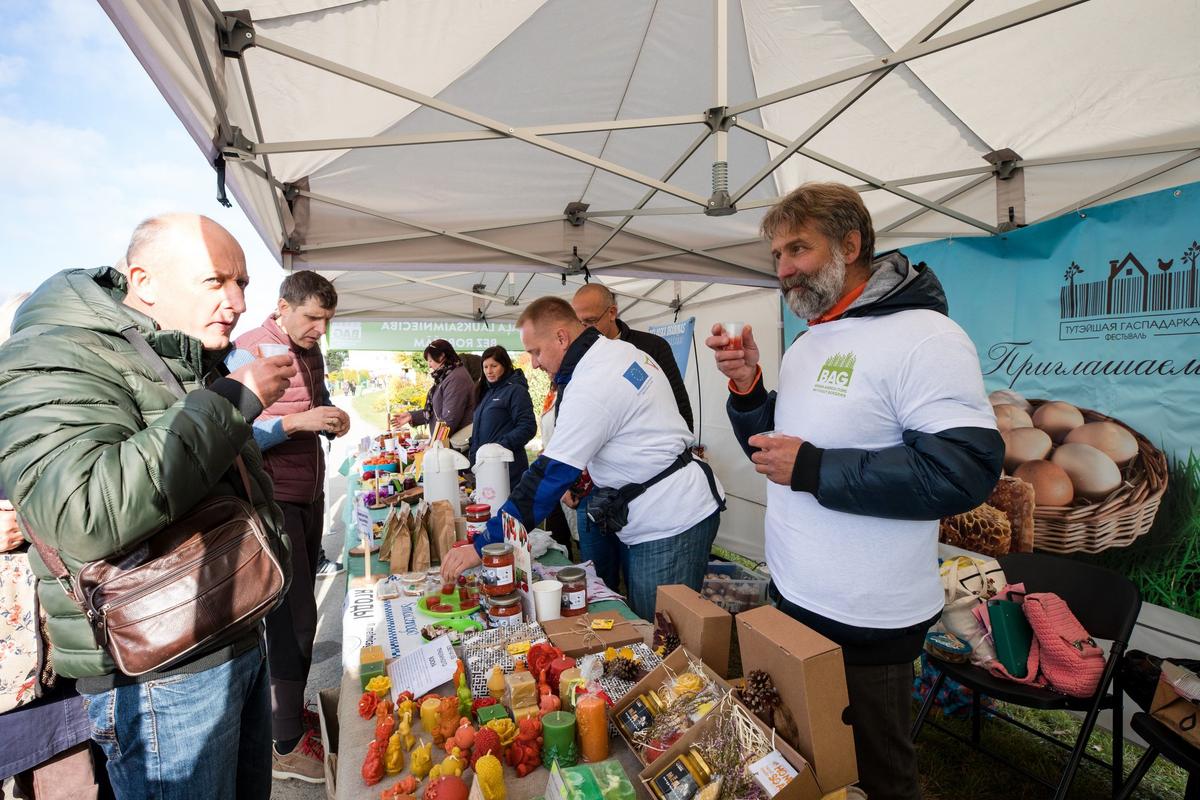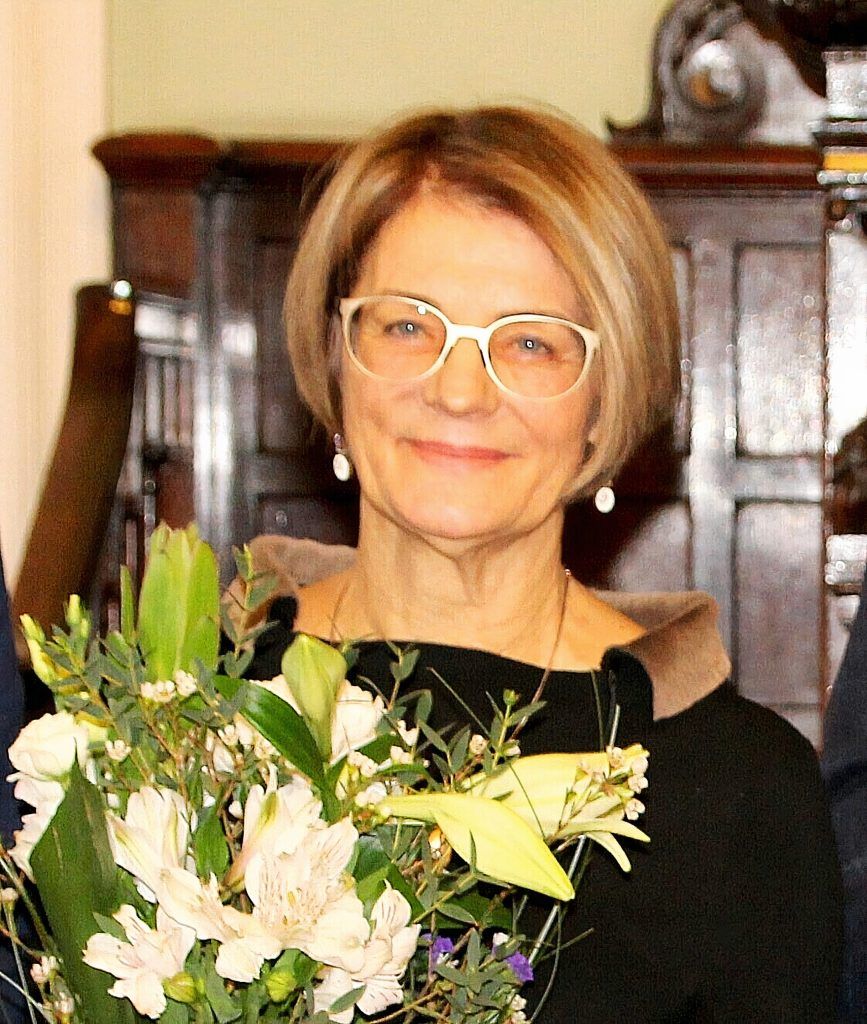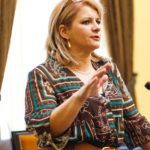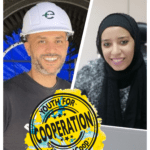Voices from the field
Brigita Tivca
Green farmers conquering shelves with IT
High-quality, easy-to-use, attractive agricultural products packed in a way to match the desires of modern customers and to conquer stores’ shelves: this is how the “Green Agriculture without Borders” project (BAG) is supporting farmers in Latvia, Lithuania and Belarus, three countries linked by historically fertile land and hard-working people. BAG is an initiative helping local farmers to promote their green products and to reach the modern buyer, who is increasingly interested in ecological products.
The project – financed by Latvia-Lithuania-Belarus – has launched an online platform collecting manufacturers’ business profiles; it has organised training programmes and it is helping farmers to create attractive packaging to ‘seduce’ buyers. The icing on the cake was last year’s celebration of a cross-border fair where the entrepreneurs could present directly their goodies to the potential customers. TESIM asked a few questions to Brigita Tivca, project manager, to find out how they are helping farmers to contribute to a skilled, modern, green economy.

Agricultural production: which problems are communities facing in the area covered by project activities?
The project is implemented in Zemgale (Latvia), Panevežys (Lithuania), Minsk and Grodno regions (Belarus) where agriculture is a seasonal job and farmers often lack a clear vision of business opportunities, potential markets and the skills required to deliver products that can match the desires of modern shoppers: we are talking about ecological, high-quality, easy-to-use and attractive products.
Can you explain the final aim of your project? Who should be benefitting from it?
We want to make a long-term contribution to a skilled and modern economy, particularly to a green agriculture sector that has historically strong roots and great potential for the future. The final beneficiaries are the local inhabitants of partner countries, both the green farmers and the consumers of healthy and high-quality products.
We know you are planning to promote products through a common IT platform: can you tell us about this?
Yes, the IT platform provides the opportunity for farmers to create their own business profile, with the descriptions of their products and contact information. In Dobele, for example, professional photo equipment was purchased and a photo studio established, where a professional photographer makes high-quality pictures that farmers can use freely for advertising and social networks. High-quality, attractive visual design and easy-to-understand content are the keywords for on-demand products. On the platform we are gathering information also from those entrepreneurs who have started to engage in green farming, thanks to the knowledge gained in our project trainings. The platform is a start, a new way to exchange ideas and share practices on how best present yourself in the e-environment.
What about your trainings? What is a creative workshop for product development and packaging?
Creative workshops are the next and logical step after theoretical knowledge. Every product that is planned to be sold and with which to conquer the shelves and customers’ wallets — must meet various aspects: from the essential requirements of food regulations, to export regulations and all other binding requirements for products to be marketable.
Equally important is to make the product packaging attractive, easy to use, suitable for green-minded consumers. In the creative workshops, we implement visual improvements of the existing product packaging and support the creation of new products that do not yet have a packaging, logo or label: for this purpose, we count with the collaboration of professional designers and food packaging specialists.
We have also purchased a multifunctional printing device, thanks to which it is possible to print a wide variety of materials. The machine greatly simplifies our work and combines all packaging functions that would otherwise need to be performed on several devices, consuming more materials, time and resources. Often such complex visual design solutions are inaccessible to the local farmers and remain only at the level of the idea. Thanks to this equipment, farmers have gained practical skills and have realised that obtaining a visually attractive design for their products is not difficult and definitely not impossible!
You have “young entrepreneurs” among your targets: are young people really interested in agriculture?
In the regions where the project is implemented, young people who have finished school or university have a tendency to show willingness to relocate and possibly manage their own land. Maybe it starts with a backyard garden area and a couple of organically grown strawberry furrows or some sea buckthorn bushes. With the right motivation, basic knowledge and business vision, more and more young entrepreneurs start their business directly in agriculture, because their own lifestyle is also based on green thinking, future, sustainability and health.
Can you explain the cross-border added value of your action?
All partner countries are linked by historically fertile land and hard-working people, but over time, specific strong traits and qualities have developed in each region. Lithuania has long been known for excellent trade and business skills. During the trainings they were responsible for the theoretical workshops on business management. In turn, the strongest side of Latvia is their visualisation and marketing skills, which were shared both theoretically and in practice with partners. The key contribution of Belarus was the in-depth knowledge of agriculture, based on observations, research and a professional approach to each of the crops that can be grown in our latitudes. All three partner countries have similar seasonal characteristics and types of production, so these needed skills and knowledge are important values to be shared in the region.




















